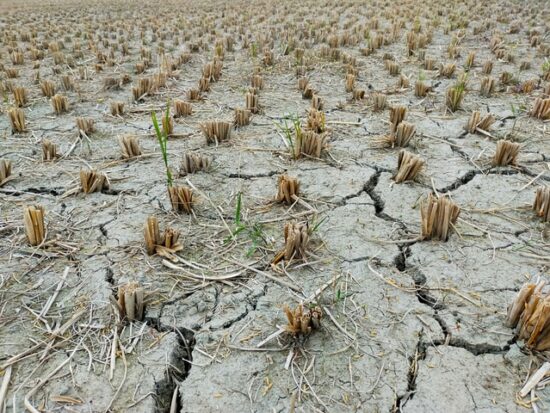Two-thirds of Europe is under some kind of drought warning, in what is likely to be the worst such event in 500 years.
The latest report from the Global Drought Observatory says 47 percent of the continent is in “warning” conditions, meaning the land is parched. Another 17 percent are in standby – meaning the vegetation is “showing signs of stress”.
The report warns that the dry spell will hit crop yields, spark fires and could last several months longer in some of Europe’s southern regions. Compared to the average of the previous five years, EU crop forecasts are down 16 percent for corn and wheat, 15 percent for soybeans and 12 percent for sunflowers.
The Drought Observatory is part of the European Commission’s research arm. In response, the Commission warned that preliminary data suggest “the current drought still appears to be the worst in at least 500 years”.
The ongoing heatwave and water shortages have “created unprecedented stress on water levels across the EU”, said Research Commissioner Mariya Gabriel.”We are currently seeing a significantly above average fire season and a significant impact on crop production. Climate change is definitely more visible every year,” she added.
The report warned that almost all of Europe’s rivers have dried up to some extent.
Apart from the obvious impact on boats, the dry rivers are also hitting the energy sector, which is already in crisis. According to the report, hydroelectric power has dropped by a significant 20 percent.
A “severe drought” has been present in many places throughout the year, but “is expanding and worsening further since the beginning of August,” he says. Conditions are likely to last until at least November this year across the European Mediterranean.
The report warns that the situation is worsening in countries such as Italy, Spain, Portugal, France, Germany, the Netherlands, Belgium, Luxembourg, Romania, Hungary, northern Serbia, Ukraine, Moldova, Ireland and Great Britain.
The researchers’ stark warning follows rapidly sinking river levels across Europe, which have exposed relics of the past.





